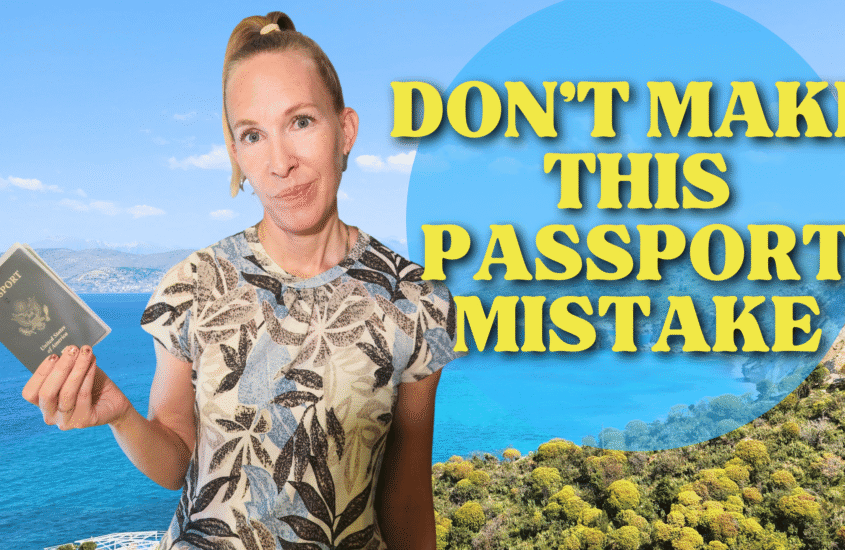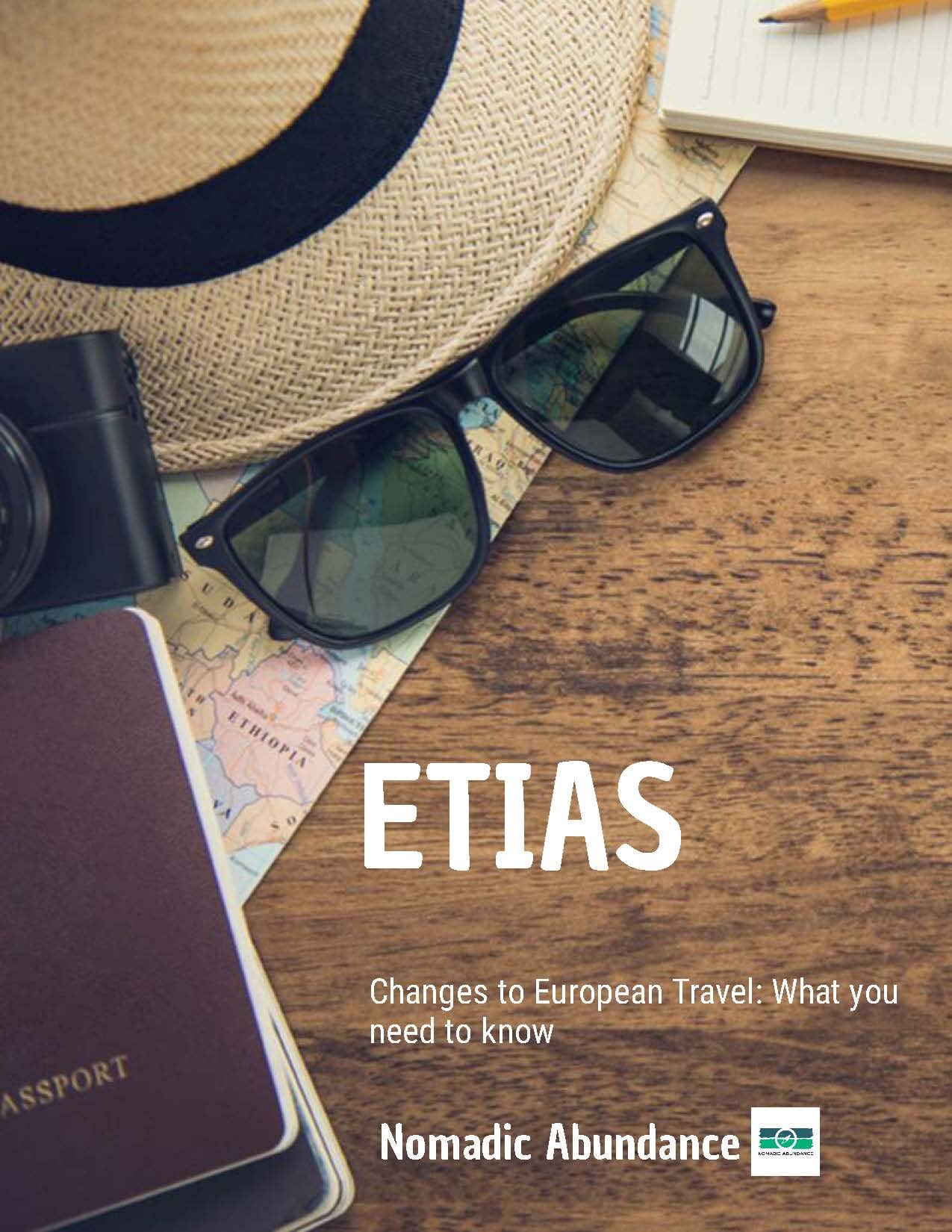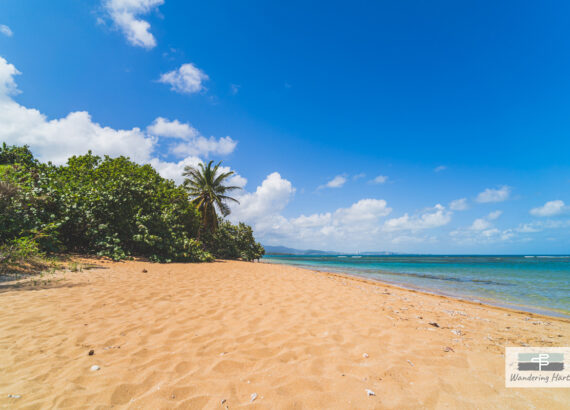7 Essential Steps to Take Before Flying Abroad to Avoid Travel Mistakes

By Michelle Hartz & Joel Hartz | Last updated June 9, 2025
Disclosures
Use of affiliate and sponsored links help us to provide articles like these.
Affiliate disclosure: Please be aware that this article contains affiliate links, which means we earn a small commission at no additional cost to you. As an Amazon Associate we earn from qualifying purchases.
Traveling abroad is an exhilarating experience that opens doors to new cultures, cuisines, and adventures. However, while booking flights and choosing your perfect vacation outfit are exciting steps, there are crucial preparations often overlooked by travelers. These oversights can lead to frustrating delays, denied entries, or even ruined trips.
As seasoned full-time travelers for over five years, we’ve encountered and learned from many of these mistakes traveling abroad. In this comprehensive guide, we’ll share the 7 essential things you must do before flying abroad to ensure your journey is smooth, safe, and enjoyable.
Whether you’re embarking on a short vacation or planning an extended stay overseas, these tips will help you avoid common pitfalls and prepare you for a hassle-free experience. Let’s dive in!
1. Verify Your Passport: The Foundation of International Travel
Your passport is the single most important document when traveling internationally. Without it, you simply cannot cross borders. But owning a passport isn’t enough; you must ensure it is valid and ready for your trip.
Check Passport Validity
Most countries require that your passport be valid for at least three months beyond your planned departure date from their territory. This “three-month rule” is standard and strictly enforced. For example, if your passport expires within three months after your trip ends, you may be denied boarding or entry.
To avoid such issues, always:
- Check the expiration date well in advance of your trip.
- Renew your passport if it is within six-months of its expiration.
Inspect Passport Condition and Pages
Besides expiration, the physical condition of your passport matters. Immigration officials may refuse entry if your passport has torn pages, markings, or damage.
Best practices include:
- Ensuring you have at least three blank pages available for visas and stamps.
- Avoiding any writing, stickers, or damage to passport pages.
- Using a protective cover for your passport to keep it safe during travel.
We’ve heard stories from fellow travelers who faced denied entry simply because of damaged or marked passport pages. Don’t let this happen to you.
2. Understand Visa and Travel Authorization Requirements
Having a valid passport is just the first step. Depending on your destination and nationality, you may need additional documentation such as visas or travel authorizations.
Tourist Visas: Know When You Need One
Tourist visas grant legal permission to enter a country for leisure purposes. The requirements vary widely:
- Visa-Free Travel: Many countries allow passport holders from certain nations to enter without a visa for short stays.
- Visa on Arrival: Some countries issue visas at the airport or border crossing.
- eVisas: Electronic visas applied for online before travel.
- Traditional Visas: Applied for in advance at embassies or consulates, often requiring additional documents and photos.
Important tips:
- Research visa requirements specific to your nationality and destination well ahead of time.
- Apply early if a traditional visa is required, as processing can take weeks to months.
- Be prepared to pay visa fees, which vary by country and visa type.
- Consider a visa services company for more complicated visas.
Travel Authorizations and eArrival Cards
In addition to visas, some countries require travel authorizations—pre-screening permissions obtained online before your trip. Examples include:
- UK Electronic Travel Authorization (ETA)
- Australia and New Zealand ETAs
- Upcoming EU Schengen ETIAS (European Travel Information and Authorization System)
These authorizations usually last several months to years and carry a nominal fee. They are mandatory even if you do not require a visa.

Planning travel to any Schengen Country?
Be aware of a new travel authorization going into affect in 2026 for travel to European counties in the Schengen Area called ETIAS.
Learn all about it in our eBook ETIAS – New Rules for Travel to Schengen Countries
Similarly, some countries have replaced paper arrival cards with eArrival cards that you fill out online, typically within 72 hours before arrival. Countries like the Philippines and Thailand use this system, which is often free and streamlines immigration processing.
Know Your Allowed Length of Stay
Understanding how long you can legally remain in a country is critical, especially for long-term travel. Overstaying your visa or allowed period can result in fines, bans from re-entry, or other penalties.
Be sure to:
- Mark your exact exit date.
- Include travel days in your count.
- Respect the maximum allowed stay to avoid complications.
Additional Entry Requirements
Some countries may require:
- Proof of sufficient funds to support your stay.
- Travel medical insurance.
- Background checks or other documents.
Always check the embassy or official government websites for up-to-date entry requirements.
3. Don’t Skip Travel Medical Insurance
Medical emergencies can happen anywhere, and healthcare abroad can be expensive. Having travel medical insurance is a safety net that every traveler should carry—whether or not your destination mandates it.
Why Travel Medical Insurance is Crucial
If you get sick, have an accident, or require medical evacuation, travel insurance can cover hospital stays, surgeries, medications, and emergency services. Many domestic health plans, especially in the United States, do not cover care outside the country, making travel insurance essential.
Choosing the Right Plan
We recommend SafetyWing, a popular provider for digital nomads and travelers. They offer two main plans:
- Nomad Insurance Essential Plan: Covers unexpected medical treatments, hospital stays, surgeries, medications, lost luggage, travel delays, and emergency evacuations. It also includes up to 30 days of medical coverage in your home country.
- Nomad Insurance Complete Plan: Includes everything in the Essential Plan plus routine medical care worldwide, wellness therapies, mental health support, cancer treatment, and additional coverage for burglary, canceled accommodations, and travel delays.
⚕ Never travel without being covered with International Travel Medical Insurance! We recommend this plan if under 50 years old and this one if over 50 years old
Both plans are flexible for short vacations or extended trips lasting several months (up to a year). Investing in good travel medical insurance will give you peace of mind and financial protection against unforeseen events.
4. Stay Connected: Mobile Phone and Data Tips for International Travel
In this digital age, staying connected abroad is essential for navigation, communication, and security. From ride-sharing to accessing bank accounts via two-factor authentication, your mobile phone is your lifeline.
Options for Mobile Connectivity
Here are the best ways to ensure you have reliable data and phone access while traveling:
- International Mobile Plans: If you have a premium mobile plan with international data included, this is the easiest option for trips lasting a few days up to a month.
- Local SIM Cards: Purchase a SIM card upon arrival. This requires an unlocked phone and physically swapping the SIM card. It’s often cheaper but less convenient.
- eSIMs: Many newer phones support eSIM technology, allowing you to download and activate a local or international data plan digitally before arrival. We’ve used eSIMs extensively across Europe and Asia and highly recommend them for flexibility and ease.
Avoid Expensive Data Roaming Charges
Before you travel, make sure to:
- Turn off data roaming on your phone if you don’t have an international plan, to prevent costly charges.
- Look into international packages or day passes offered by your carrier, but be aware they can be expensive.
For eSIM options and reviews, check out recommended providers like Yesim, Airalo, and Jetpac (use code JPHARTZ10 for 10% off).
More Travel Tips and Tech Articles
- BNESIM Review: Your Ultimate Guide to Staying Connected Abroad [2025]
- The Ultimate Guide to Using Jetpack eSIM for International Travel: Pros, Cons, and Top Features [Review]
- Unlock Global Connectivity: How Airalo eSIM Can Slash Your International Phone Bills! [Review]
- The Ultimate Guide to eSIMs for Travel in Thailand: Save Money and Stay Connected
5. Prepare Backup Payment Methods: Credit and Debit Cards
Money management abroad can be tricky. Having reliable payment methods is a must to avoid financial headaches during your trip.
Carry Multiple Cards
Always bring at least one credit card and one debit card, plus backups for each from different banks or financial institutions. Here’s why:
- ATM machines may eat your card or malfunction.
- Credit cards sometimes get declined without explanation.
- Cards can expire unexpectedly—check expiration dates before traveling.
Use Travel-Friendly Credit Cards
Choose credit cards with no foreign transaction fees and good travel rewards. Using credit cards offers better fraud protection compared to debit cards. Plus, racking up points can lead to free flights or hotel stays.
Limit debit card use to ATM withdrawals at bank-affiliated machines to reduce fraud risks and account holds. Be aware that local banks often impose daily withdrawal limits, which can be lower than your home bank.
For recommended travel credit cards, visit our resources page.
6. Download and Set Up Essential Travel Apps
Your smartphone is your best travel companion, but only if you have the right apps installed and ready to go.
Research Local Apps Before You Go
Many countries have unique apps for transportation, communication, and payments. Download and set up these apps before departure, including creating accounts and linking payment methods.
Must-Have Travel Apps
- Transportation: Airlines’ official apps, local ride-share apps like Bolt, Uber (Europe), Grab or Line (Asia), and train or bus booking apps.
- Communication: Google Translate for language assistance, WhatsApp for messaging, and apps for eSIM management if applicable.
- Navigation: Google Maps is indispensable for finding your way.
- Banking: Your bank’s app to monitor accounts and detect fraud quickly.
Having these apps ready will save you time and hassle once you arrive.
7. Make Copies of Your Travel Documents: Digital and Physical
One of the smartest precautions you can take is to have backup copies of your important documents.
What to Copy
- Passport (photo page)
- Visa or eVisa confirmations
- Travel authorizations or eArrival cards
- Flight tickets and hotel reservations
- Travel insurance documents
- Prescriptions or doctor’s notes for your medical needs
How to Store Copies
Store digital copies securely in the cloud or on your phone, and also carry physical printouts in your carry-on luggage. Avoid putting important documents in checked baggage, as it might get lost or delayed.
Sharing your itinerary with a trusted friend or family member is also a good safety measure, so someone knows your whereabouts during your travels.
Frequently Asked Questions (FAQ)
How far in advance should I renew my passport before traveling abroad?
It’s best to renew your passport at least six months before it expires, especially if your trip requires six months of validity beyond your return date. Passport processing times vary by country but can take several weeks.
Can I enter a country without a visa if I have a valid passport?
Visa requirements depend on your nationality and destination. Some countries allow visa-free entry for certain passports, while others require visas or travel authorizations. Always check official government sources.
Is travel medical insurance really necessary?
Yes. Medical emergencies abroad can be costly and complicated without insurance. Travel medical insurance covers unexpected illnesses, accidents, and emergency evacuations, ensuring you’re protected financially and medically.
How can I avoid expensive roaming charges on my phone?
Turn off data roaming if you don’t have an international plan, purchase a local SIM, or use an eSIM with a data plan specific to your destination. Research your options before traveling.
What should I do if my credit or debit card is lost or stolen abroad?
Contact your bank immediately to report the loss and freeze your account. It is also advisable to carry a backup card for an additional bank account, and to familiarize yourself with your bank’s international contact numbers. This knowledge can expedite the resolution of any issues that may arise while you are abroad.
Why is it important to have both digital and physical copies of travel documents?
Digital copies provide easy access and backup if originals are lost or stolen. Physical copies are essential in case of device failure or lack of internet access. Carrying both reduces stress during emergencies.
Conclusion
Traveling abroad is one of life’s most rewarding experiences, but it requires careful preparation to avoid common mistakes traveling abroad that could derail your plans. From ensuring your passport is valid and undamaged to understanding visa requirements, securing travel medical insurance, staying connected, managing your money wisely, downloading essential apps, and backing up your documents, these seven steps form the foundation of a successful international trip.
By following these guidelines, you’ll not only protect yourself from unexpected issues but also enhance your overall travel experience. Remember, preparation is the key to freedom and enjoyment on the road.
Happy wandering and safe travels!
This article was created from the video 7 Things You MUST Do Before Flying Abroad! These Could Save your Trip!
Are you ready to embrace full-time or part-time travel, or is retirement just around the corner?
Join the tribe, and let’s kickstart your slow travel journey!

At Nomadic Abundance, we’re here to help you tackle the overwhelm of planning your new life abroad. Our membership offers the resources and guidance you need to make your transition to slow travel as seamless as possible.
Find out more information go to nomadicabundance.com or in video form on YouTube.
Thank you for supporting the site, Happy Wandering!
You’re almost there!
Enter your email below to get your FREE copy of the eBook: Escape The USA: How To Start Traveling and Live Overseas!
- 7 Essential Steps to Take Before Flying Abroad to Avoid Travel Mistakes - June 9, 2025
- Want to Travel Full Time? Here’s What’s Holding You Back - May 30, 2025
- A City Guide to Coworking in Bansko, Bulgaria [2025] - May 12, 2024










